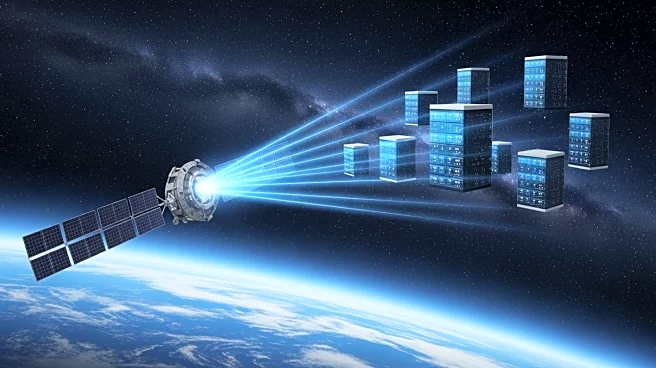What's Happening?
As demand for data centers continues to rise, driven by advances in artificial intelligence, companies are exploring the feasibility of space-based data centers. These facilities require significant land
and energy resources, leading to increased carbon dioxide emissions. The ASCEND project in Europe aims to demonstrate the potential of space-based data centers to reduce CO2 emissions by utilizing continuous solar energy available in space. However, technological advancements are necessary to make this vision a reality, including the development of environmentally friendly rockets. Companies like Madari Space and Lonestar Data Holdings are taking initial steps by launching small computing components into orbit.
Why It's Important?
The exploration of space-based data centers represents a significant shift in how data infrastructure could be managed in the future. By moving data centers off-planet, companies could potentially reduce their environmental footprint and overcome terrestrial constraints related to land and energy. This innovation could lead to new business opportunities and technological advancements, impacting industries reliant on data processing and storage. However, the economic viability and technical challenges of maintaining data centers in space remain significant hurdles.
What's Next?
The development of space-based data centers will require continued investment in research and technology to address challenges such as heat dissipation, radiation protection, and cost-effective launch solutions. Companies involved in this initiative may collaborate with space agencies and technology firms to advance the necessary infrastructure. The success of initial missions could pave the way for larger-scale deployments, potentially transforming the data center industry.
Beyond the Headlines
The move to space-based data centers raises ethical and environmental concerns, including the management of space debris and the long-term sustainability of space operations. The potential for increased space traffic and the impact on existing satellite systems are considerations that must be addressed. Additionally, the geopolitical implications of space-based infrastructure could influence international relations and regulatory frameworks.









